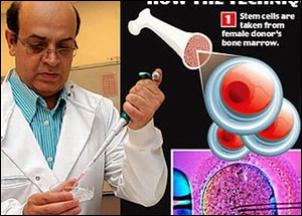WELCOME TO ALL WEB SURFERS Welcome, this website is intended to give viewers information on the fascinating science and history behind artificial organs research and development. Although scientist are a not quite ready to bring about synthetically grown organs, we can still look at what progressions scientists have made so far. However for those of you that are squeamish some of the images shown on this site may not be appropriate, so remember that you've been warned. Weather your new to biotechnology or not this site may provide some interesting information, enjoy. WHAT'S THE DEAL WITH SYNTHETIC BIOLOGY ? Unlike traditional genetic engineering, synthetic biology uses recombinant DNA techniques to create brand new kinds of DNA molecules. It's goal is to create an organism that does what its engineer has designed it to do. Synthetic biology is not a cut and paste process like genetic engineering. Instead it is a rather different process of writing or rewriting an organism's genetic code. Now in a rapidly advancing world of technology synthetic blood vessels could eventually be created to coincide with an under going heart surgery, although right now the biggest problem facing this study is the fact that the kind of technology capable of creating synthetic blood has not been made yet, which is why the only organs people can create are skin and cartilage because these organs are avascular, which is just a fancy way of saying that they don't have any blood vessels. It's exciting to think of all the possibilities of synthetic biology and engineering, but we are still a long way off. In recent years tissue engineers have begun to figure out new ways to help patients grow new tissues and even entire organs like artificial skin, and laboratory grown cartilage. Of course the trick with tissue engineering and creating an actual organ is to come up with the proper synthetic organs that can withstand the strain of doing the body's tasks while also biodegrading to leave room for the real thing to come. This was not even possible to think about many years ago, that is until biologists finally began to think about the engineering of artificial organs and took their first leap into a world of new possibilities. In 1885 M. Von Frey and M. Gruber built the first artificial heart and lung apparatus for organ perfusion studies. It was a relatively simple device relying on a thin film of blood, but it was a major step in the right direction. Since the growing need for these new advancements in science are in demand, growing health care has resulted in an increased life span for the people and when there is a growing shortage of donor organs it makes it clear that organ substitution devices will play a large role in managing patients. The field of medical devices and artificial organ development are redefining what people believe to be possible. Once these devices are constructed out of synthetic components they'll be either fully artificial or bio artificial, which is why scientists thought of the name "biobrid organs". Now this all seems like something from "star wars", or the world of fantasy and science fiction, but in an ever growing world of new possibilities and technical strides, the line between science fiction and reality just might blur a bit. While synthetic organs may be in the works they could really help people. Would you be willing to let some stranger give up his/her organs to help someone or would you want to be involved with the future of medical technology ? ? ?
|
||
Image from io9.com  QUESTION  |
VIDEO The following video was provided by You Tube For those of you a little bit curious about synthetic biology at work check out this fascinating short video. Apparently creating synthetic components is slightly similar to making a computer hard drive, but with a little bit more precision. |
|